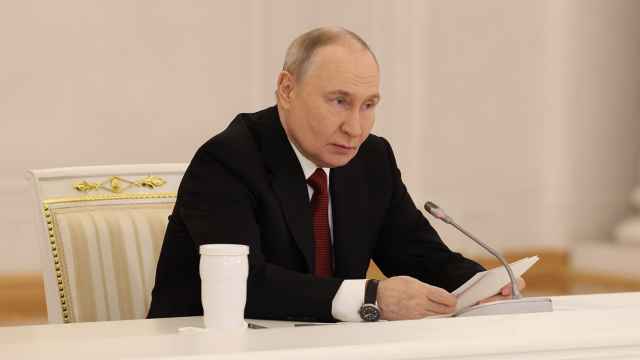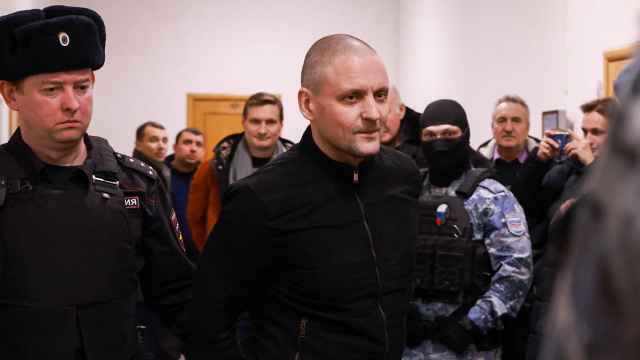WASHINGTON — Any deal with Syria to hand over its chemical weapons in the middle of a chaotic civil war would be difficult for inspectors to enforce, and destroying them would likely take years, U.S. officials and experts caution.
Syria's strongest backer, Russia, proposed Monday that Damascus save itself from a U.S. military strike over its alleged use of chemical weapons by putting its stockpiles under international control.
The proposal was welcomed by Syria and seized upon by the secretary-general of the United Nations. U.S. President Barack Obama said the offer was a potential breakthrough but had to be handled with skepticism.
Syria has never signed a global treaty banning the storage of chemical weapons and is believed to have large stocks of sarin, mustard gas and VX nerve agents. The actual use of chemical weapons is banned by a 1925 treaty to which Damascus is a signatory.
Accounting for Syria's chemical arms cache — believed to be spread over dozens of locations — would be difficult, as would be shielding arms inspectors from violence.
"This is a nice idea but tough to achieve," said one U.S. official speaking on condition of anonymity.
"You're in the middle of a brutal civil war where the Syrian regime is massacring its own people. Does anyone think they're going to suddenly stop the killing to allow inspectors to secure and destroy all the chemical weapons?" the official said.
Amy Smithson, an expert on nuclear, biological and chemical weapons at the James Martin Center for Nonproliferation Studies in Washington, said a lack of hard data on Syria's chemical weapons inventory would complicate verification.
She pointed to years of cat-and-mouse maneuvering between UN weapons inspectors and then-president Saddam Hussein in neighboring Iraq as an example of what could happen in Syria.
"The Iraqis lied through their teeth. They did everything they could to hide these ultra-secret weapons programs," Smithson said.
"Libya also did not come completely clean when it forfeited their weapons of mass destruction program."
Syria's Scientific Studies and Research Center oversees chemical weapons facilities in Dumayr, Khan Abou, Shamat and Firaqlus, according to the U.S. Center for Strategic and International Studies.
Brigadier General Mustafa al-Sheikh, a Syrian army defector, said in an interview this summer that most of the chemical weapons have been transported to Alawite areas in Latakia and near the coast. Some chemical munitions remain in bases around Damascus, he said.
The U.S. has been watching Syria move around its chemical weapons since last year. General Martin Dempsey, chairman of the U.S. military's Joint Chiefs of Staff, told Congress last week that he thought Syrian President Bashar Assad's forces were doing that to keep them secure.
But the Syrian government's motives are unclear, and U.S. officials privately acknowledge those movements complicate identification of chemical weapons sites.
"While Assad controls the chemical stockpiles, they've been moved over time," a second U.S. official said, also speaking on condition he not be named.
"Security and relocation of those weapons with a very fluid situation on the ground with the opposition forces [fighting] could pose challenges."
Experts say it would take months to locate and secure Syria's chemical weapons and years to destroy them — and there is always the possibility some are left over.
"You're always going to have the problem of the bomb in the basement," said Joseph Cirincione of the Ploughshares Fund group, which opposes the spread of nuclear, biological and chemical weapons.
"It's possible that the regime would hold some back that you wouldn't know about. But there's ways of getting at that," he added, pointing to past efforts to cross-check stockpiles against production records.
For Obama, who is waging an uphill battle to win domestic support for military action, a UN deal could prevent a potentially devastating defeat in Congress.
But even as he described Russia's proposal as potentially positive in a NBC television interview, Obama said: "I think you have to take it with a grain of salt initially."
A Message from The Moscow Times:
Dear readers,
We are facing unprecedented challenges. Russia's Prosecutor General's Office has designated The Moscow Times as an "undesirable" organization, criminalizing our work and putting our staff at risk of prosecution. This follows our earlier unjust labeling as a "foreign agent."
These actions are direct attempts to silence independent journalism in Russia. The authorities claim our work "discredits the decisions of the Russian leadership." We see things differently: we strive to provide accurate, unbiased reporting on Russia.
We, the journalists of The Moscow Times, refuse to be silenced. But to continue our work, we need your help.
Your support, no matter how small, makes a world of difference. If you can, please support us monthly starting from just $2. It's quick to set up, and every contribution makes a significant impact.
By supporting The Moscow Times, you're defending open, independent journalism in the face of repression. Thank you for standing with us.
Remind me later.





